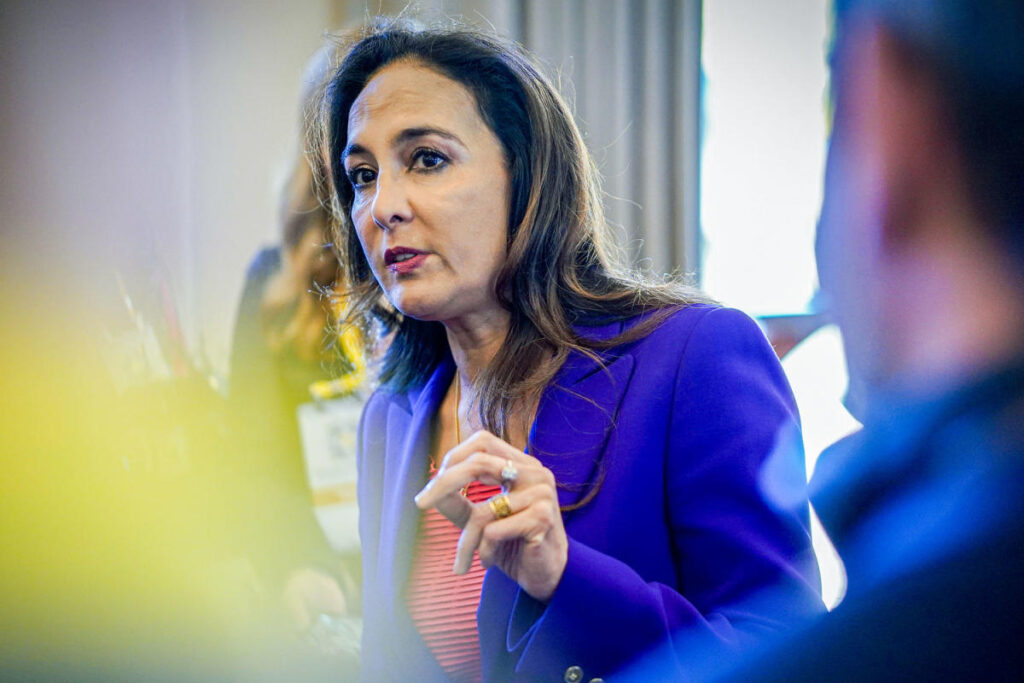In a significant move signaling a priority shift within the U.S. Department of Justice, President-elect Donald Trump has nominated Harmeet Dhillon, a Republican lawyer and the California Republican national committeewoman, to head the Civil Rights Division. Trump took to social media to praise Dhillon’s commitment to defending civil liberties, highlighting her efforts against big tech, her advocacy for religious freedoms, and her litigation against companies employing “woke” policies. Dhillon’s rise as a notable conservative figure was particularly marked during her legal battles in the liberal landscape of San Francisco, where she represented Trump supporters claiming they were targeted for their political beliefs, epitomized by her 2016 lawsuit against the city of San Jose for alleged negligence in protecting conservative rally-goers.
Dhillon’s controversial legal portfolio includes defending a Google employee over his dismissal for expressing controversial views on gender and biological differences, indicating her critique of what she describes as a hostile environment for conservative ideas within major corporations. Critics, including Maya Wiley from The Leadership Conference on Civil and Human Rights, have condemned Dhillon’s record, suggesting it reflects a tendency to undermine civil rights rather than protect them. Wiley’s criticism points to broader concerns about her alignment with the Republican Party’s push against voting access reforms, arguing her nomination underscores an ideological drive that prioritizes viewpoint over universal civil protections.
During the COVID-19 pandemic, Dhillon became a prominent figure as she undertook multiple legal actions against California’s stay-at-home orders, advocating for business owners and religious groups that sought to continue operating. This advocacy won her national attention and fostered closer ties with Trump, who appreciated her willingness to confront gubernatorial authority. Recently, she has also represented clients involved in gender-related legal disputes, further illustrating her engagement in contentious societal issues. Critics argue that such representations demonstrate a consistent pattern of diminishing civil liberties rather than expanding them.
Dhillon’s political career has included significant roles such as co-chairwoman of Lawyers for Trump, an initiative aimed at contesting the election results in 2020. Her nomination to the Civil Rights Division, if successful, would not only signify a shift from the Biden administration’s focus but would also mark a historic moment, as she would be the first Republican woman to lead the division and the second Indian-American overall. The Sikh Coalition praised the nomination as a pivotal moment for representation, highlighting the importance of diverse voices in governmental roles.
Support for Dhillon’s nomination within conservative circles has been enthusiastic, with figures like Roger Severino from the Heritage Foundation claiming her unique qualification to address what they view as the Biden administration’s problematic “woke” policies. Such endorsement comes alongside a recognition from less conventional allies, including prominent Democrat attorney Mark Geragos, who also expressed confidence in her ability to navigate the intricacies of civil rights law amid her challenging background.
The nomination of Dhillon accompanies a growing list of Trump’s allies taking prominent roles within the Justice Department, including figures like Pam Bondi and Todd Blanche in significant legal positions. The political landscape within the department is poised for notable changes if Dhillon is confirmed, especially as her law firm has engaged in a series of legal disputes on behalf of Trump. This includes a pivotal legal battle regarding Trump’s eligibility for the presidency, which reached the U.S. Supreme Court. As her confirmation potentially unfolds, the implications of Dhillon’s leadership in the Civil Rights Division will resonate across various social and political battlegrounds, shaping discourse around civil liberties in America.

